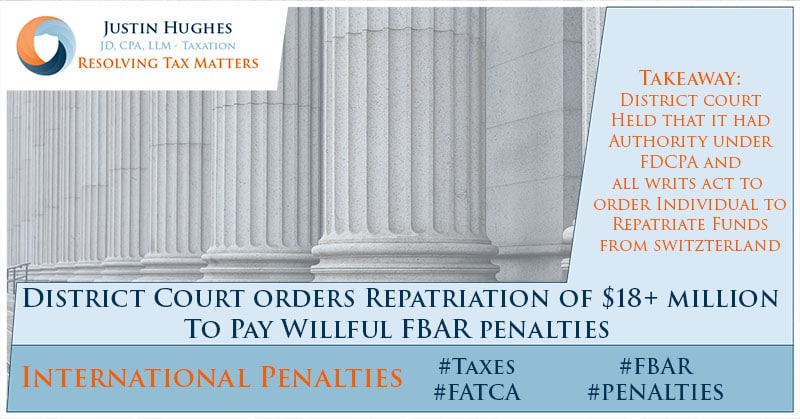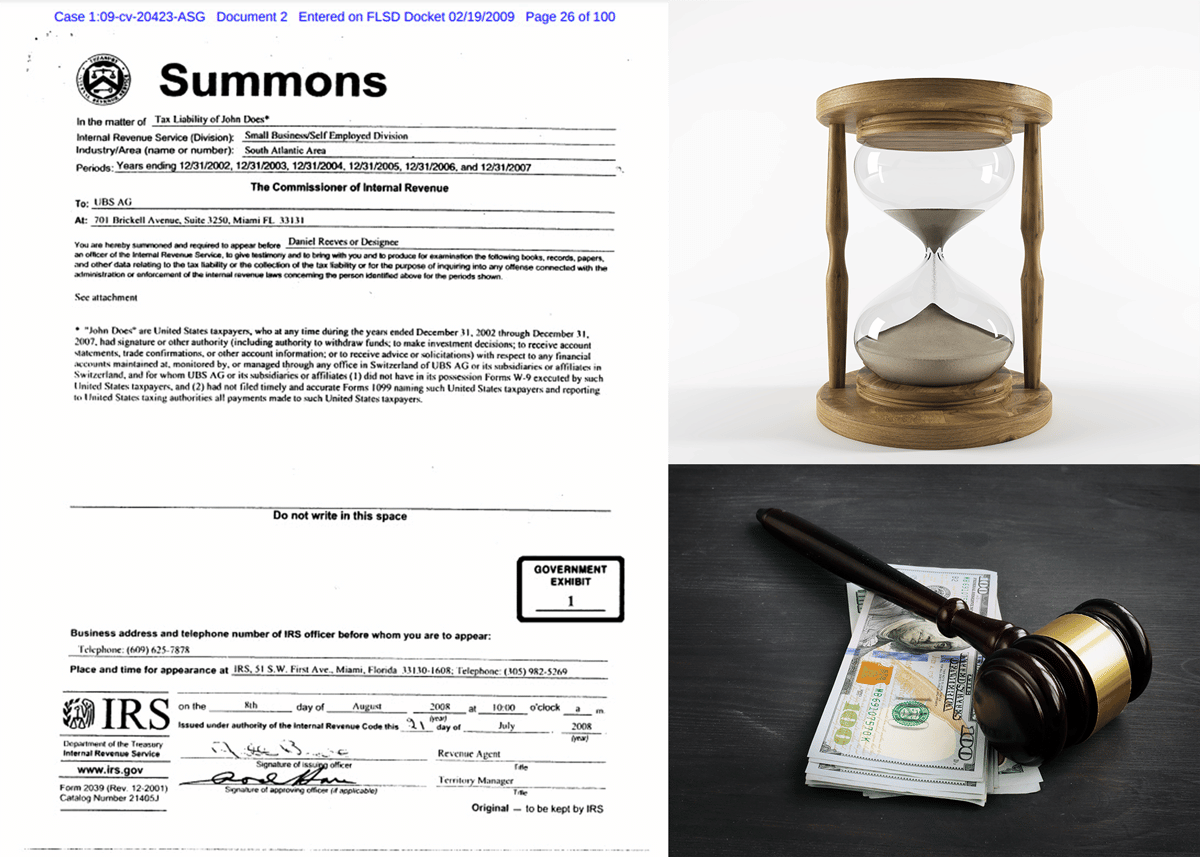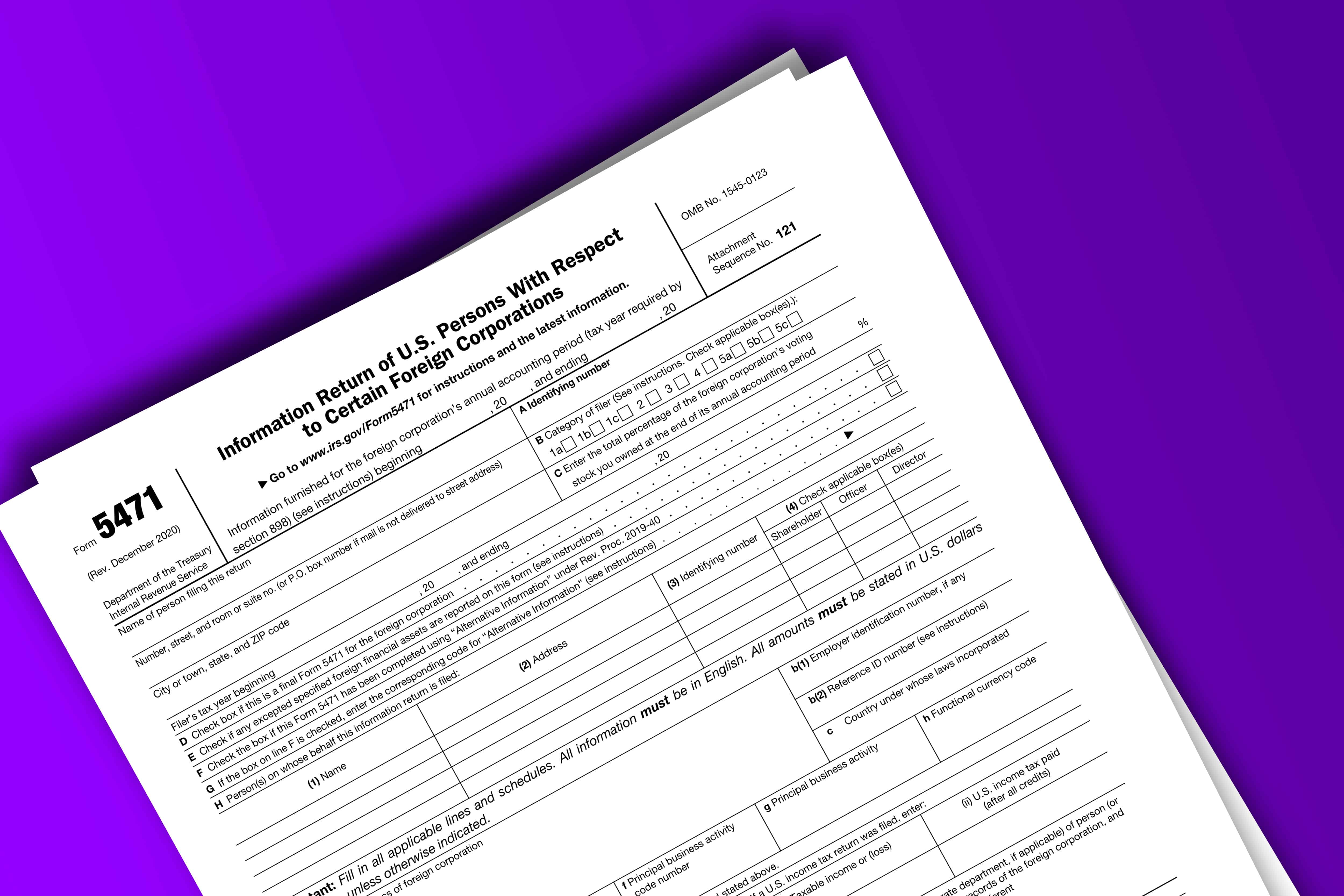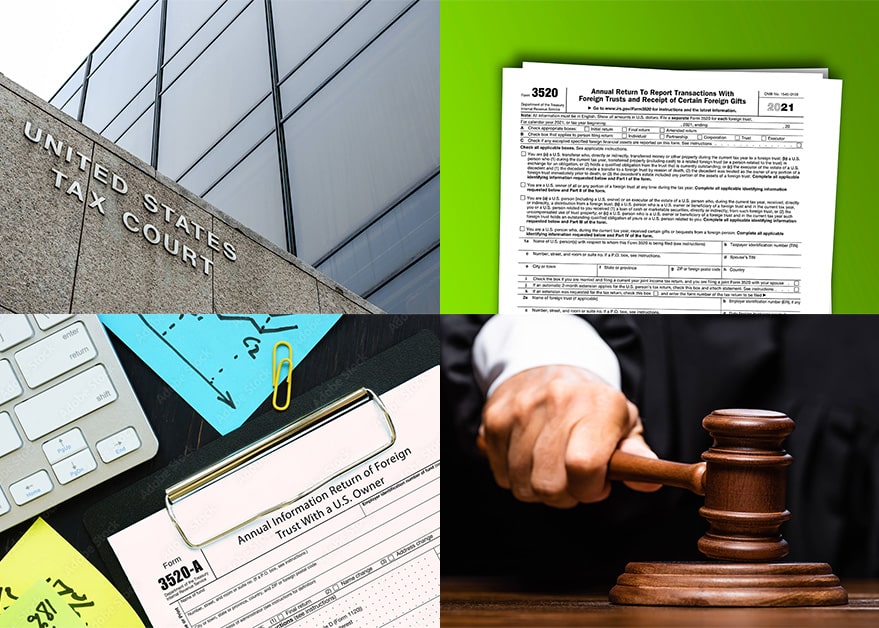Court Orders That Individual Must Repatriate $18+ million From Switzerland to Pay Willful FBAR Penalty Liability
On Tuesday October 26, 2021, Judge Bloom for the District Court of the Northern District of Florida adopted a Magistrate’s recommendation to issue an order to compel repatriation of funds to satisfy a willful FBAR penalty and accrued interest of more than $18 million dollars.[1]
The Magistrate’s Report and Recommendation was issued on June 30, 2021.[2] I wrote about the Magistrate’s Report and Recommendation and the parties arguments in detail here: link to post – Magistrate Recommends Order to Compel Repatriation of Funds to Pay FBAR Penalties.
Overview of Magistrate’s Report and Recommendation to Order Repatriation to Satisfy FBAR Penalties
To quickly recap, the US Government successfully argued that the Defendant was liable for willful FBAR penalties for 2007, 2008, and 2009 in a federal suit to reduce the FBAR penalties to judgement. As of June 2021, the FBAR penalties, accrued interest, and fees owed to the government was north of $18 million dollars.
Under Federal Debt Collection Procedures Act (“FDCPA”, Title 28 U.S.C. §§ 3001-3308), the government has the authority to levy or garnish the defendant’s assets. However, the Defendant’s assets are all outside of the United States, so the Government could not garnish the Defendant’s assets to satisfy the liability. Therefore, the Government sought an exceptional remedy: an order to compel the Defendant to repatriate sufficient funds from Switzerland to the United States to pay the FBAR penalties.
The government argued that the All Writs Act provided the court with the ability to supplement the statutory remedies in the FDCPA (i.e., levy and garnishment) with an order to compel repatriation.
On the other hand, the Defendant argued that the FDCPA did not specifically provide the Court with the authority to compel repatriation. Furthermore, the Defendant argued that granting a repatriation order did much more than supplement the FDCPA; instead, the Court would be essentially crafting a new, overbroad remedy that went beyond the authority granted in the All Writs Act and the FDCPA.
The Magistrate’s Report and Recommendation agreed with the Government’s argument.
Judge Adopts Magistrates Report & Recommendation
After the Magistrate’s Report and Recommendation was issued, the Defendant timely lodged his objections. The US Government replied. As a result, the report & recommendations to which the objections were made were reviewed de novo by the Judge.
In the Judge’s order, she stated that the incorporation of the All Writs Act in the FDCPA is clear as was the Court’s personal jurisdiction over the Defendant. The Judge noted that, in a line of cases concerning collection of federal tax liabilities, courts have issued an order of repatriation to satisfy federal tax liabilities. (I discussed those cases and arguments in the prior post linked to above.) Despite the fact that tax debts and FBAR penalties stem from different titles within the federal code, the Judge saw no “convincing basis” why the reasoning in the referenced line of tax cases did not apply as well in this case. The Judge noted that to hold for the Defendant would “would incentivize judgment debtors to retain assets overseas to avoid collection of a valid judgment obtained by the Government.”
Therefore, the Judge agreed with the Government’s arguments and adopted the Magistrate’s Report & Recommendation.
What’s Next?
The Judge ordered the US Government to craft a proposed order to effectuate adoption of the recommendation to order repatriation. That proposed order is due by November 4, 2021. It is possible that the Defendant could appeal the Court’s decision.
In addition, the substantive merits of the Defendant’s willful FBAR penalties are still on appeal to the Eleventh Circuit Court of Appeals.[3] In that appeal, the Defendant is arguing that the Court applied the wrong definition of willfulness. Oral arguments were held earlier this month, so it will be some time before an opinion is issued.
As I noted in my prior post, there is also a question as to whether the Defendant will comply the order to repatriate funds. The Defendant has already asserted that, based upon the advice of Swiss counsel, he does not believe that he can be forced to move the funds back to the US to pay the FBAR penalties.
Assuming the Defendant and his assets remain in Switzerland, would the US Government seek to enforce the judgement in Switzerland? Enforcing judgments in another country’s court is generally not a simple or quick task. It remains to be seen if the Government would move to enforce the judgment in Switzerland and whether the Swiss courts would enforce the judgment.
Notes
[1] See Schwarzbaum v. US, No. 9:18-cv-81147, (S.D. FL. Oct. 26, 2021) (Dkt No 127).
[2] See Schwarzbaum v. US, No. 9:18-cv-81147, (S.D. FL. June 30, 2021) (Dkt No 124).
[3] See 11th Circuit Court of Appeals Docket # 201-12061 on appeal from 9:18-cv-81147-BB (S.D. FL.).

Justin Hughes, JD, CPA, LL.M.
Justin Hughes focuses on resolving federal and state tax disputes for individuals and businesses. He has represented clients before the IRS and state taxing authorities at all stages, including audits, administrative appeals, litigation, and collections. As both an attorney and a CPA, he combines legal insight with accounting experience to help resolve tax problems for clients.






